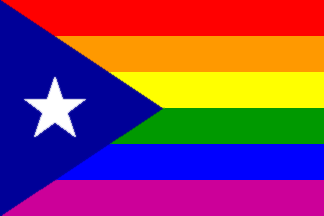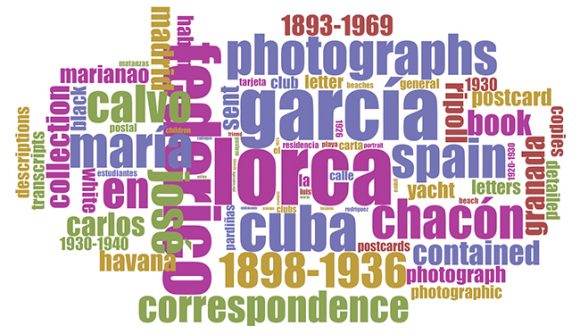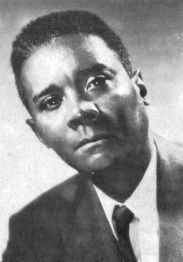Austin Clarke’s Critical Neglect Panel
Congress of Humanities Conference
Place: Ryerson University, Toronto, Canada
Date: 27 May – 2 June 2017
CFP Deadline: 1 November 2016

Austin Clarke’s Critical Neglect Panel
Congress of Humanities Conference
Place: Ryerson University, Toronto, Canada
Date: 27 May – 2 June 2017
CFP Deadline: 1 November 2016

Beyond Perpetual Antagonism: Reimagining U.S.-Cuba Relations
11th Conference on Cuban and Cuban-American Studies
Place: Modesto A. Maidique Campus, Miami, Florida
Date: 23- 25 February 2017
CFP Deadline: 31 October 2016
Continue reading Beyond Perpetual Antagonism: Reimagining U.S.-Cuba Relations
Dancehall, Music and the City
Global Reggae Conference
Place: the University of the West Indies, Mona
Date: 9 -11 February 2017
CPF Deadline: 15 November 2016
“Whither the Caribbean?: Stuart Hall’s Intellectual Legacy”
2017 Stuart Hall Conference
Place: University of the West Indies, MONA
Conference: 1-3 January 2017
CFP Deadline: 1 February 2017
 Continue reading Whither the Caribbean?: Stuart Hall’s Intellectual Legacy
Continue reading Whither the Caribbean?: Stuart Hall’s Intellectual Legacy
Shifting the Geography of Reason XIV: Theorizing Livity, Decolonizing Freedom Jamaica –Summer 2017
Caribbean Philosophical Association
CPF Deadline: 19 December 2016
Revisiting Queer Puerto Rican Sexualities: Queer Futures, Reinventions, and Exclusions
A special issue of CENTRO Journal
Guest Editors: Lawrence La Fountain-Stokes (University of Michigan, Ann Arbor) and Yolanda Martínez-San Miguel (Rutgers, State University of New Jersey, New Brunswick-Piscataway)
CFP Deadline: 15 October 2016

Reading Cuba: An Interdisciplinary Conference on Cuban and Cuban-American Literature
Florida International University
9-10 November 2016
CFP deadline: 1 September 2016

Call for Papers Continue reading Reading Cuba
Call for Papers for a special issue of Caribbean Vistas Journal: Critiques of Caribbean Arts and Cultures
CFP deadline: 1 August 2016
Volume 2.2 (Summer 2017) of Caribbean Vistas Journal: Critiques of Caribbean Arts and Cultures will highlight the work of Caribbean Writers, Performance Artists, and Visual Artists working from Canada.
Caribbean Vistas Journal seeks critical essays on all aspects of Caribbean Writers working from Canada are welcomed entries. Previously unpublished poetry and literary nonfiction from Caribbean artists working from Canada are also welcomed entries. Visual art images and video links to performances by Caribbean artists working from Canada accompanied by artistic statements also will be accepted for publication consideration. Interviews with Caribbean Artists [working from Canada] will be considered as a special feature of Volume 2.2 (Summer 2017). Continue reading Caribbean Writers, Performance Artists, and Visual Artists Working From Canada
Co-Directors Michele Shaul and Kathryn Quinn-Sánchez announce a special edition
of Label Me Latina/o edited by Jill Toliver Richardson
CFP Deadline: 4 November 2016
This special edition focuses on the work of Afro-Latino/a writers who are developing a literary and performance tradition, which delineates an Afro-Latina/o experience in the United States and defines the elements of Afro-Latina/o identity. Afro-Latina/o writers within the United States are producing their own literary tradition that is deeply connected to the experiences of those of African heritage throughout Latin America and the Caribbean. Together they are demanding the recognition of Afro-Latinidad throughout the African diaspora. This issue was conceived in response to recently published texts, including The Afro-Latin@ Reader: History and Culture in the United States edited by Miriam Jiménez Román and Juan Flores 2010 (Duke UP), which examine various elements of Afro-Latinidades and provide diverse conceptualizations of Afro-Latina/o identity within and beyond the U.S. For this special edition of Label Me Latina/o, we are requesting works that identify and explore the most pertinent topics in Afro-Latina/o literature and
performance including but not limited to memory, the body, race, nation, diaspora,
transnationalism, sexuality, gender and spirituality. We are also requesting creative works by Afro-Latina/o writers (US-based) that explore some aspect of the Afro-Latina/o experience. Continue reading Black and Latin@: Conceptualizing Afro-Latinidad in Afro-Latina/o Literature and Performance
Call for Papers for edited anthology:
Teaching Haiti Beyond Literature: Intersectionalities of History, Literature and Culture
CFP deadline: 500 word abstract due by 25 June 2016; Full draft due by 10 January 2017
In “Poem for the Poorest Country in the Western Hemisphere”, poet Danielle Legros Georges chants: “Oh poorest country, this is not your name/ You should be called beacon, and flame.” Haiti, the only country with the last name of “poorest country in the Western hemisphere” is often at the crossroads of either been venerated in History as the First Black Republic or being pitied. Latin American historian Philippe Zacaïr notes that Haiti is “only respected in books as opposed to real life.” The essays in this volume will focus on how to teach about Haiti and its complex history and culture from a transdisciplinary perspective. Its main goal is to provide best practices and practical suggestions for teaching about Haiti from multiple lenses including art, art history, cultural studies, film, gender, history, literature, and sociology to name but a few areas of interest. The volume also seeks critical essays that center on “Fatal assistance” (a term used by filmmaker Raoul Peck) to highlight the problematic of humanitarian aid and NGOs, service learning, volunteerism and disaster tourism in Haiti. Continue reading Teaching Haiti Beyond Literature: Intersectionalities of History, Literature and Culture
Special issue of Caribbean Review of Gender Studies
Guest Editors: Savitri Persaud and Fatimah Jackson-Best
CFP deadlines: Abstracts due by 30 September 2016; Manuscripts due by 6 January 2017
Call for papers
My legs were at a 45 degree angle each. I was in a wheelchair for a while after I had corrective surgery to fix it. This is basically the end result… But it’s fine. It’s cute now. Guys fantasize about it now, because I “walk wine” and girls try to walk like me… Basically, I mean my legs are double jointed. And you can put them in different positions. I’m saying, ‘My vagina is made different, and it will make you feel different, and it will make you feel like it’s not one, but actually two vaginas.’
– Tifa, Jamaican Dancehall Artiste [Interview with thefader.com]
The Caribbean Digital III
a Small Axe Project event
2 December 2016
Barnard College / Columbia University
New York, NY
Deadline for proposals: 15 July 2016
The transformation of the academy by the digital revolution presents challenges to customary ways of learning, teaching, conducting research, interpreting documents and presenting findings. It also offers great opportunities in each of these areas. New media enable oration, graphics, objects, and even embodied performance to supplement existing forms of scholarly production as well as to constitute entirely original platforms. Opportunities for interdisciplinary collaboration have expanded enormously; information has been made more accessible and research made more efficient on multiple levels. Scholars are called upon, with some urgency, to adapt their research and pedagogical methods to an academic climate deluged by a superabundance of information and analysis. This has created opportunities for open-ended and multiform engagements, interactive and continually updating archives and other databases, cartographic applications that enrich places with historical information, and online dialogues with peers and the public. Continue reading The Caribbean Digital III
Book Series: Afro-Latin@ Diasporas
Publisher: Palgrave Macmillan (https://www.palgrave.com/us/series/14759)
Series Editors: Miriam Jiménez Román, Natasha Gordon-Chipembere and Edward Paulino
CALL FOR BOOK MANUSCRIPTS
The Afro-Latin@ Diasporas book series aims to gather scholarly and creative writing on the African diasporic experience in Latin America, the Caribbean and the United States. We publish between 2-3 books annually, since our inception in 2013.
The Editors welcome book-length unpublished manuscripts addressing all aspects of Afro-Latin@ life and cultural expression throughout the hemisphere, with a strong focus on U.S. Latin@s of African descent. We will also consider relevant work on the transnational Brazilian and Haitian experiences. We will be considering manuscripts in any and all humanities and social science disciplines, as well as a wide range of interdisciplinary approaches. The peer-reviewed Series will also include fictional and poetic work, though the emphasis will be on critical historical and sociological analysis on a broad range of topics including religion, history, literature, theory, biography and scholarship in sociology, politics and economics. We especially welcome works on issues of class, gender and sexuality, in addition to studies of the transnational Afro-Latin@ experience. Doctoral dissertations must be converted into manuscript format in order to be considered. We will not consider manuscripts that have been submitted to multiple publishers simultaneously.
Publications are in English, but we also will consider book proposal in Spanish (subject to the author securing resources for full manuscript translation into English). The Series editors are pleased to consider book proposals. The proposal must include your name, title, institutional affiliation (if applicable), and contact information as well as a 3-4 page prospectus, Table of Contents, Submission Timeline and a sample chapter.
The Series editors take between 6-10 weeks for manuscript and proposal review before decisions are made to send the work further to Palgrave for peer-review and contract consideration.
Please send all enquiries to the editors at: [email protected]
Call for Conference Papers
CLR James Now!
Friday, 4 November 2016
CUNY Graduate Center
New York, NY

Deadline for proposals: *** updated deadline*** 15 June 2016
CLR James’s life spanned almost the entire 20th century. He was part of Trotsky’s circle in Mexico in the 1930s and Stuart Hall’s in the 1970s. A fulcrum of leftist thought for the past fifty years, James was an influential advocate of social change from below. James was a product of the colonial process and an early resister of it, and he recognized that the Global South as a generator of political innovation rather than a container for received ideas. As a theorist of British imperialism and what has come to be called the Black Atlantic, James helps us reorient the geographic perspective of American Studies towards the Caribbean and expands what blackness can mean in the United States.
A novelist, playwright, theorist, sports writer, literary critic voracious reader, and polymath intellectual, James forces us to challenge the narrow boundaries of academic life on the one hand and resist the lure of sectarianism in political organizing on the other. In his embrace of cricket, he claims the cultural capital of the colonizer for the post-colonial subject. His critique of Soviet communism as “state capitalism” anticipated the emergence of China as a state-run free market, just as his fascination with the Haitian revolution theorized the inextricable connections between racialization and divide-and-conquer class politics that is a focus of the Black Lives Matter campaign.
What can CLR James tell us now?
The organizers invite proposals for presentations on (but not limited to) the following topics:
Please use this Survey Monkey link to submit abstracts (250 words maximum) for the conference by 15 May 2016.
For any questions or concerns about the symposium or call, please email Justin Rogers-Cooper at [email protected]. Please help advertise and create discussion for the symposium using the social media hashtag #CLRJamesNOW
Cosponsored by the New York Metro American Studies Association (NYMASA) and the CUNY Institute for Research on the African Diaspora and Caribbean (IRADAC)
Afro-Digital Connections: Afro-Latino and Afro-Descendant Cultural Production in the Digital Age
An edited collection
CFP deadline: Abstracts due 1 May 2016
Editors: Eduard Arriaga and Andrés Villar (Western University, Ontario)
Two decades ago, scholars in fields such as communication and information studies questioned the way social relations would be adapted to the increasing importance of global digital networks and to the tools used for digital communication. Maizies (1999) has inquired whether universal access, if granted, to processes of communication and representation that incorporate other processes of production, distribution, and consumption within global digital networks will be negotiated or imposed. This issue remains current because of the ubiquity of paradigms such as those of Big-Data, Cultural Analytics, and the Digital Humanities. These paradigms are fuelled by the increasing importance of digital networks (for example, social networks, financial corporations, etc.) and the centrality of their users as sources of information.
In the Americas (North, Central and South) and the Caribbean, the issue becomes more nuanced due to the central role played by race and ethnicity in the construction of political and social relations that are reflected in people’s daily lives. Over the last two decades or so, the region has witnessed the emergence of ‘minority’ artists, activists, and organizations that take advantage of digital tools that are now more accessible: mobile technologies and social media tools increasingly allow these actors to supply their own images and self-representations. This edited book will explore the way Afro-Latin@, Afro-Latin American and Afro-Caribbean writers, artists, activists and organizations – NGO’s, grassroots communities, etc.- have adopted online digital tools and mobile technologies to create self-representations, question traditional images, and connect with communities around the globe that share similar ethno-social perspectives. This book also seeks to shed light on contemporary processes of memory creation, artistic representation, ethnic connection, digital cultural production and resistance/reparation in order to understand how ethnic communities -particularly Afro-descendant ones- are adapting these tools to their own cultural and political practices. To that end, we invite manuscripts that address Afro-Digital Connections topics including the following:
* African and Afro-descendant digital activism
* African and Afro-descendant digital art, digital performance, and digital literature
* Digital humanities and reparations for Afro-descendant communities
* Oral histories and digital archives
* Theoretical interventions exploring ethnicity/race and digital technologies
* Digital interventions that reconfigure African and Afro-descendant symbolic imaginaries.
* Critical perspectives on digital inclusion
* Digital actions against police brutality and government violence
Submission Guidelines: If interested, please submit proposals in Spanish, English or Portuguese (300-500 words) and (one-page) CVs to Eduard Arriaga ([email protected] or [email protected]) or Andrés Villar ([email protected]) by 1 May 2016. When submitting your abstract, please use “Contribution Volume Afro-Digital Connections” as the subject line.
Above adapted from ASWAD email announcement.